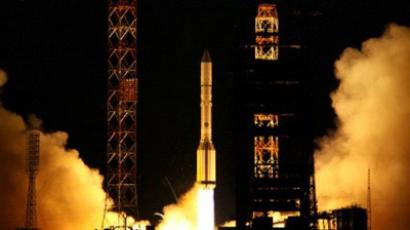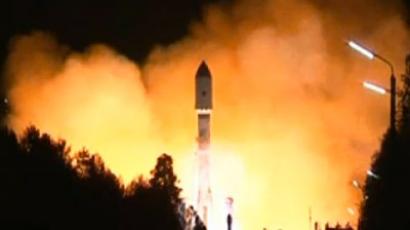Russia launches Proton-M with GLONASS satellites
Russia has successfully launched a Proton-M launch vehicle with three GLONASS-M navigation satellites from the Baikonur Space Center in Kazakhstan.
The launch was to have taken place a day earlier, but was delayed as a switch malfunction in the ground-control system was discovered during a pre-launch test. The device was then replaced.The first stage of the rocket will fall over the Karaganda region of Kazakhstan, the second stage in the republics of Altay, Tuva and Khakassia in Russia, and the third stage in the Pacific, the Federal Space Agency told Interfax on Friday.The Friday launch of the Proton-M was the first since the December 5, 2010, crash of an identical launch vehicle coupled with a DM-03 upper stage carrying three GLONASS-M navigation satellites, which dropped into the Pacific Ocean about 1,500 kilometers from Honolulu.The Proton-M three-stage liquid-fuel launch vehicle is a product of the Khrunichev State Aerospace Center. The rocket has a take-off weight of 703 tonnes and can carry payloads of up to 22 tonnes to low orbits of 200 kilometers.GLONASS is a radio-based satellite navigation system developed by the former Soviet Union and now operated by Russian Space Forces. It is both an alternative to and complementary to the United States’ Global Positioning System (GPS) and the planned Galileo positioning system of the European Union (EU).According to the Central Scientific Research Machine-Building Institute, 27 satellites are in the orbital group as of November 3. Twenty-three of them are used for their designated purpose, while one is in the phase of joining to the system, two are out of operation for technical maintenance, and one is in orbital reserve.At least 18 working satellites are needed for the GLONASS system navigation signal to be received continuously all over Russian territory, while for global purposes there needs to be 24.














